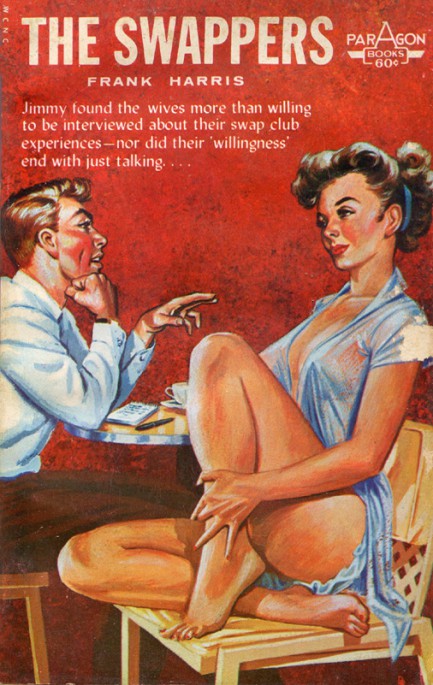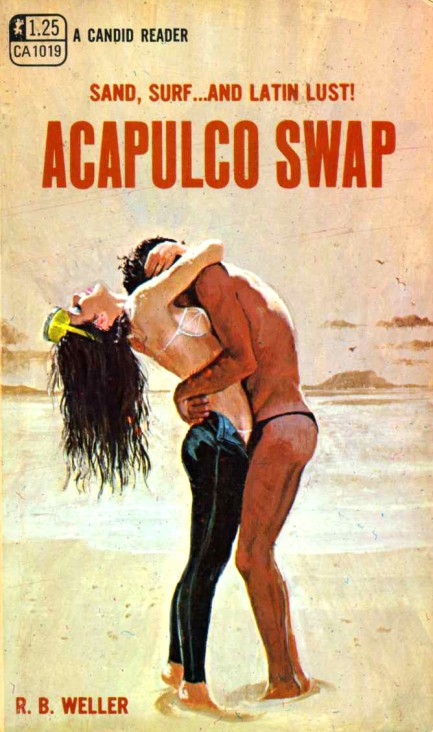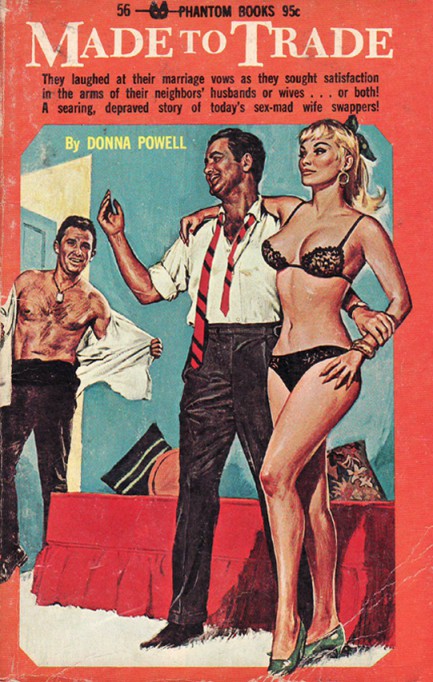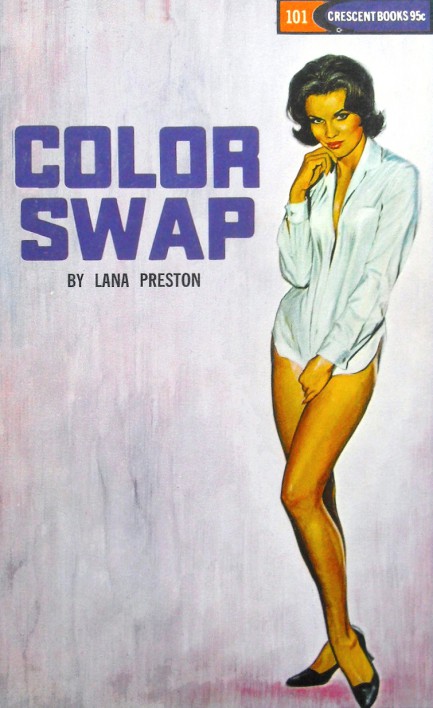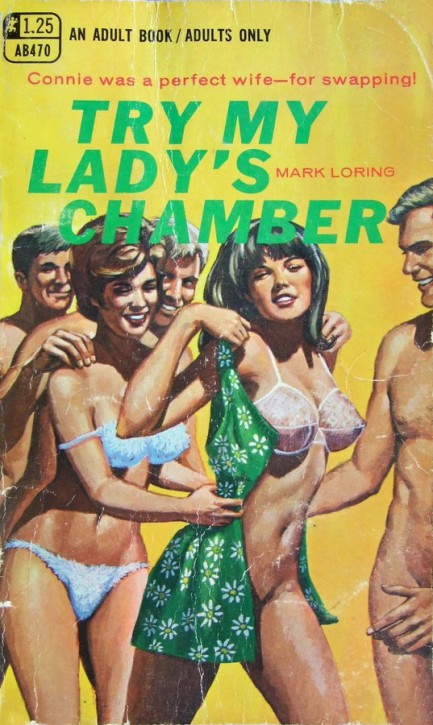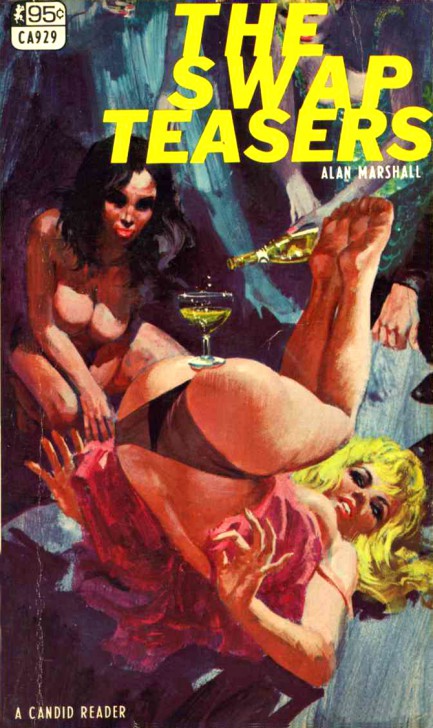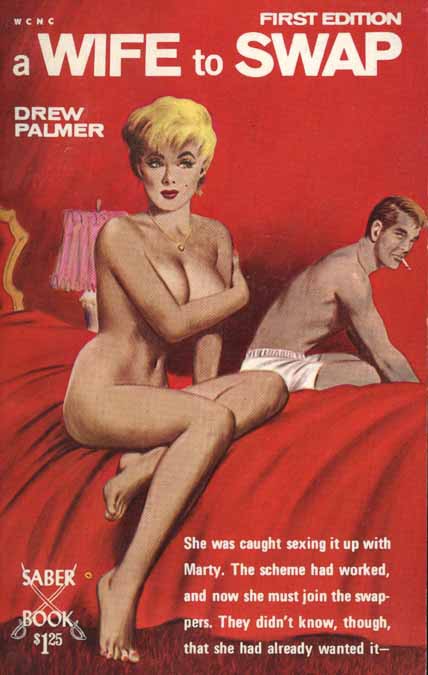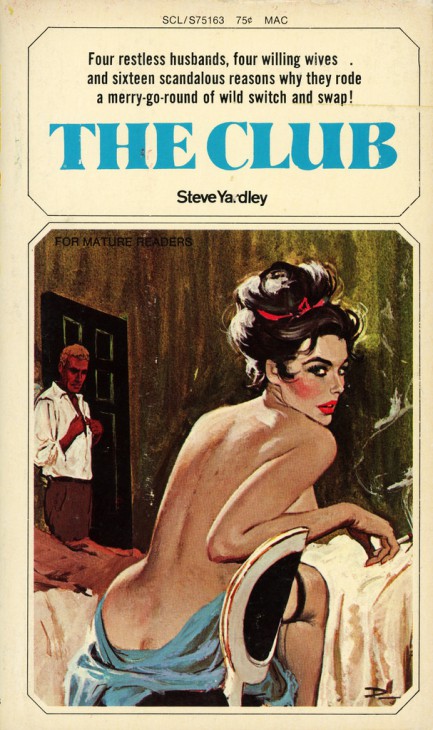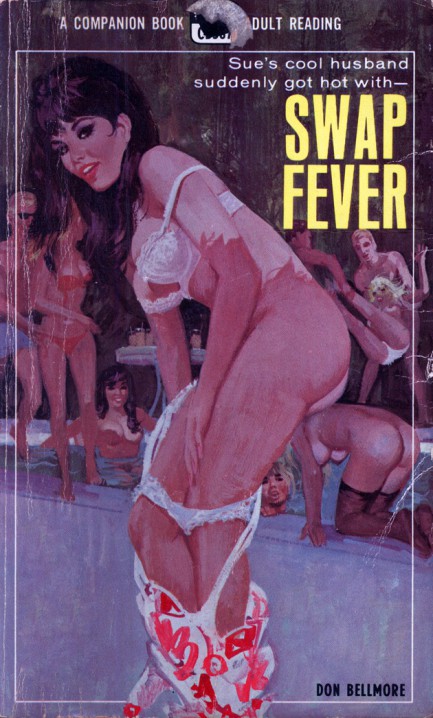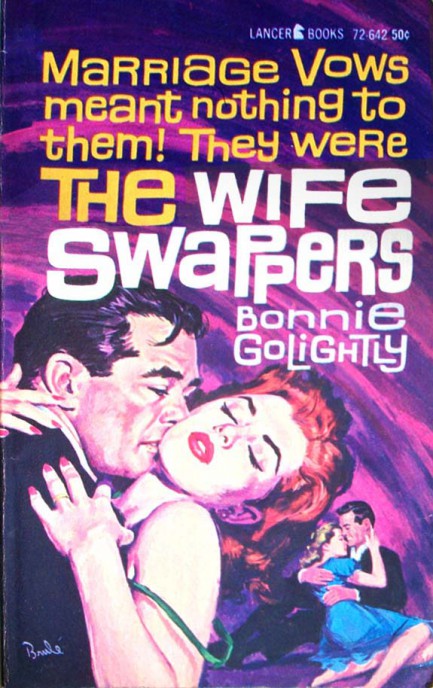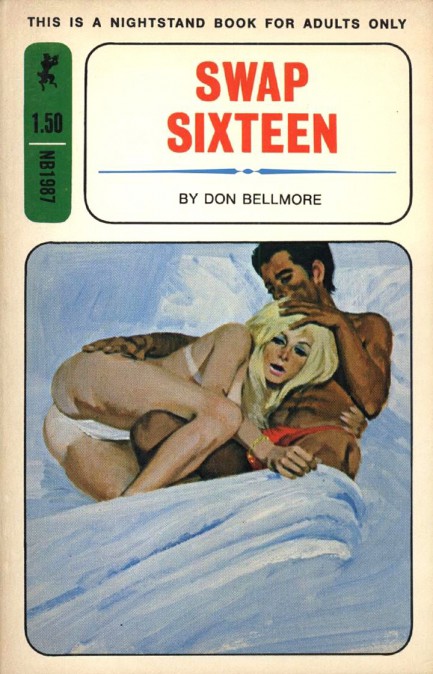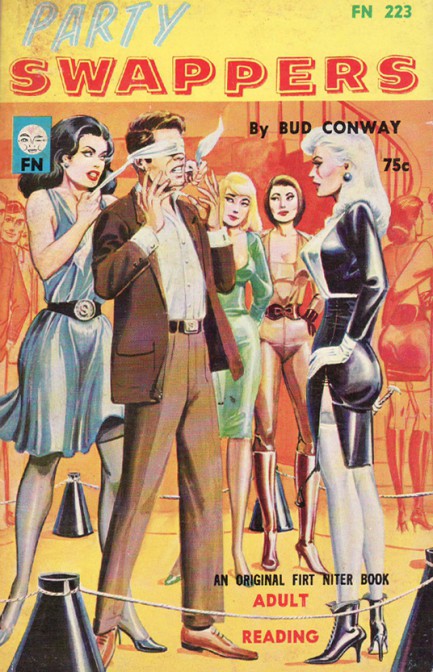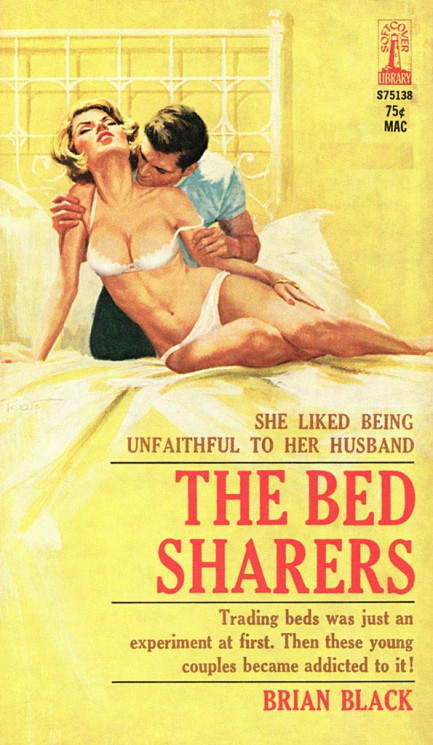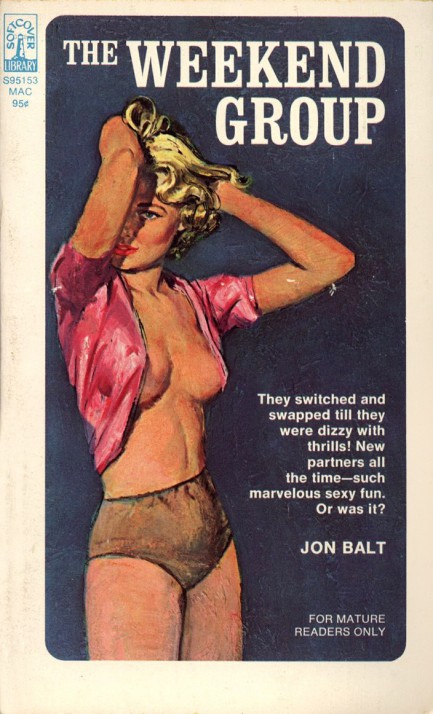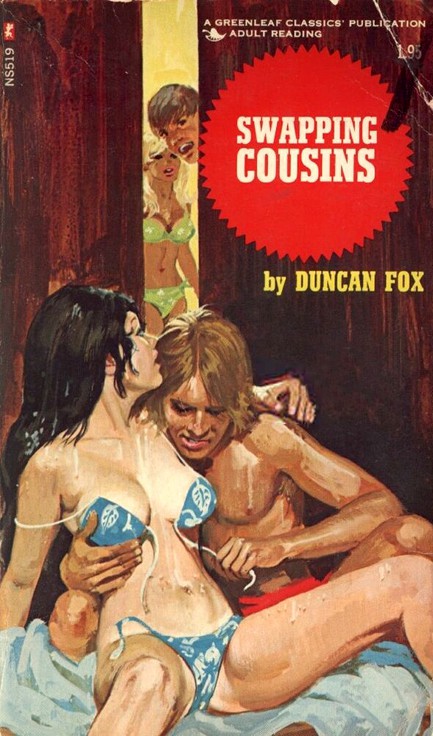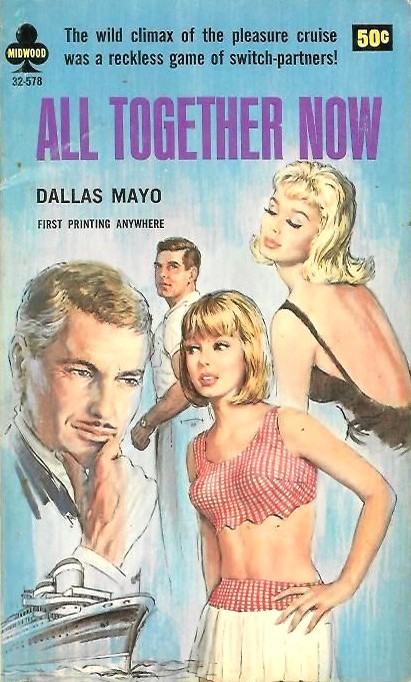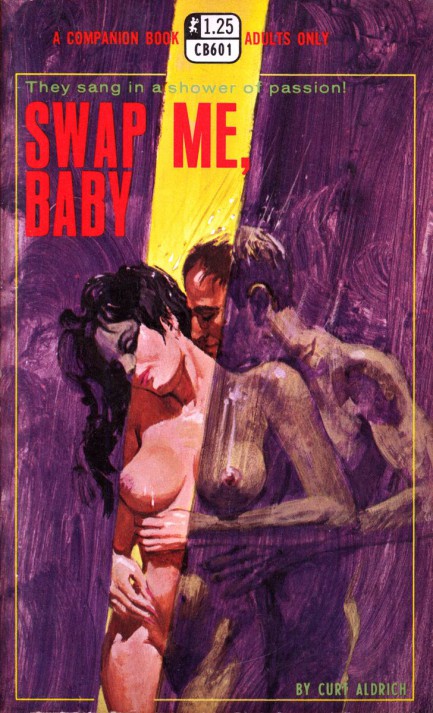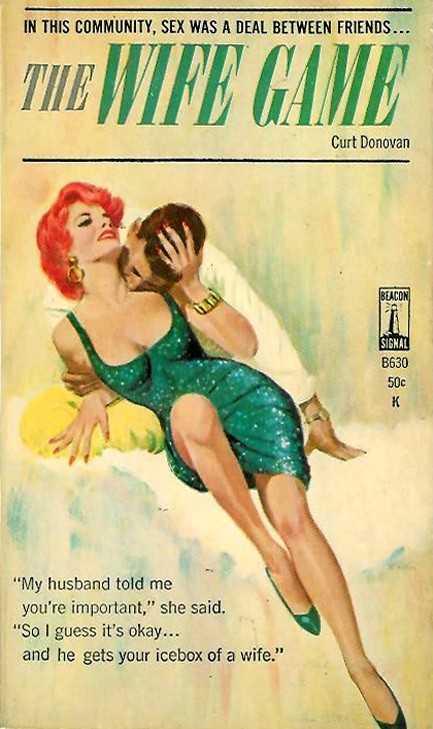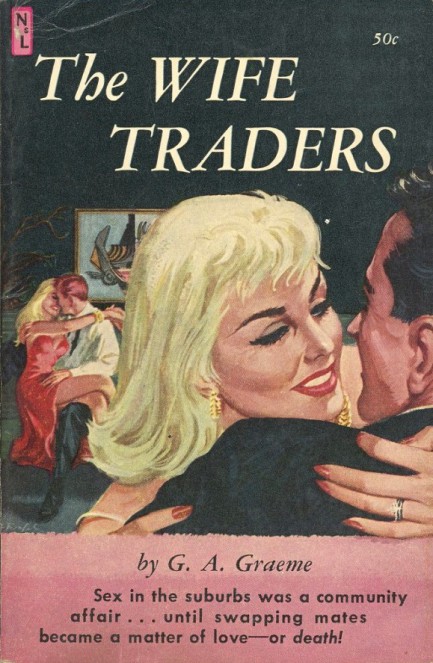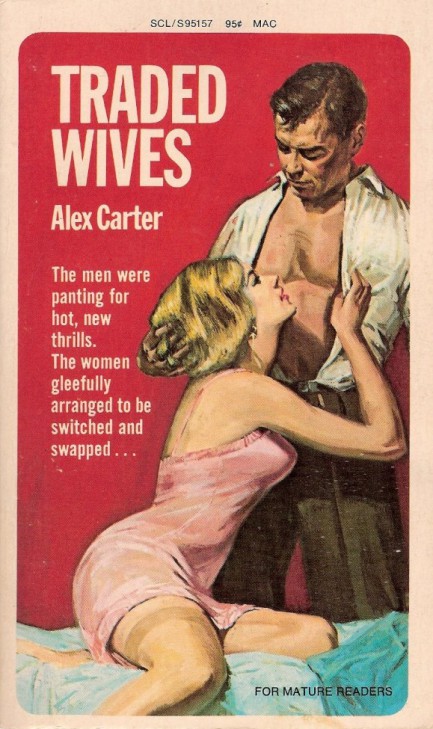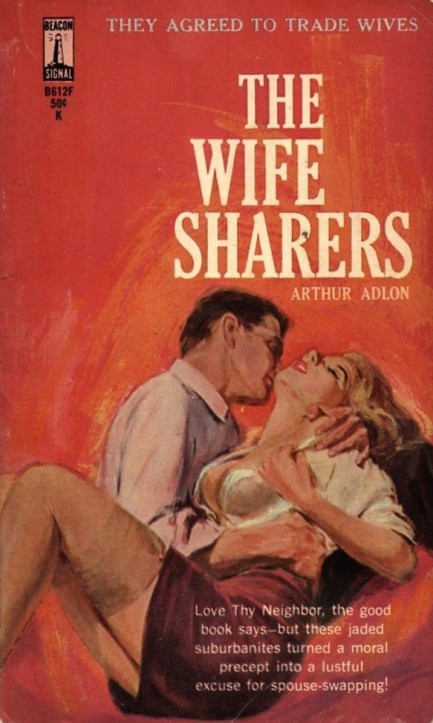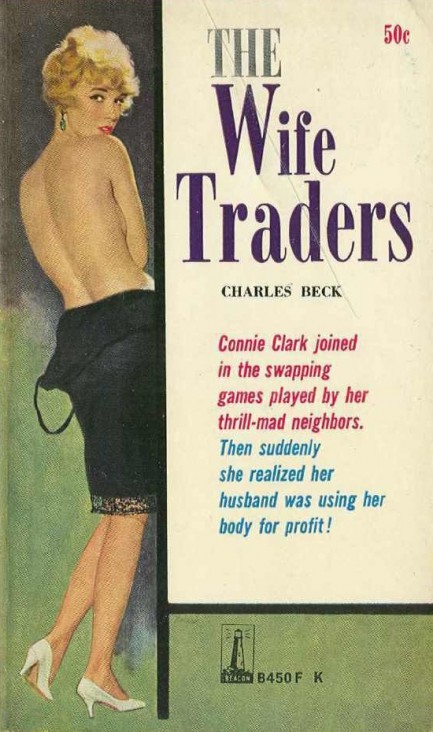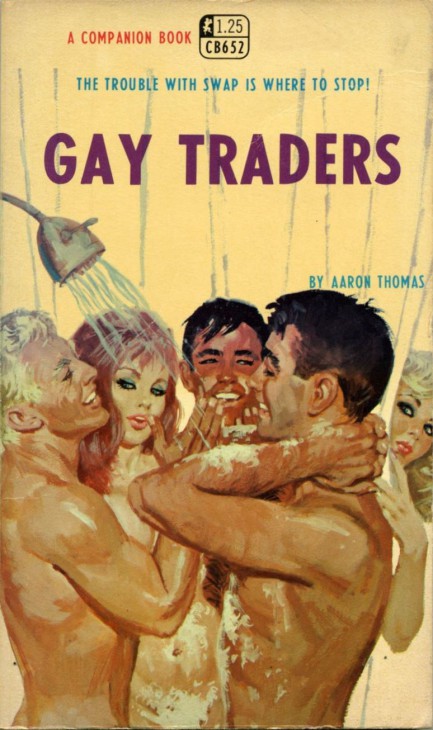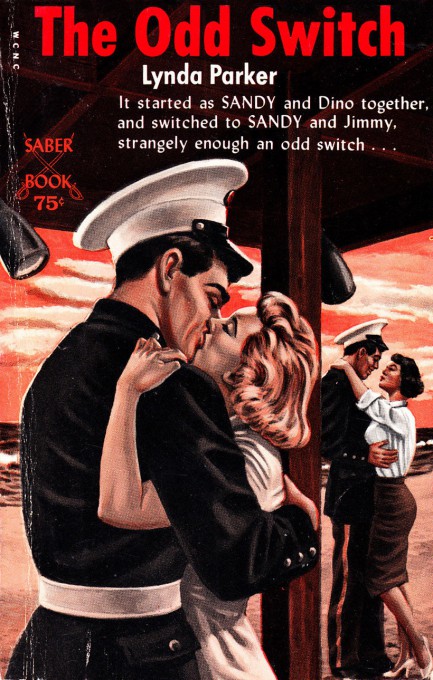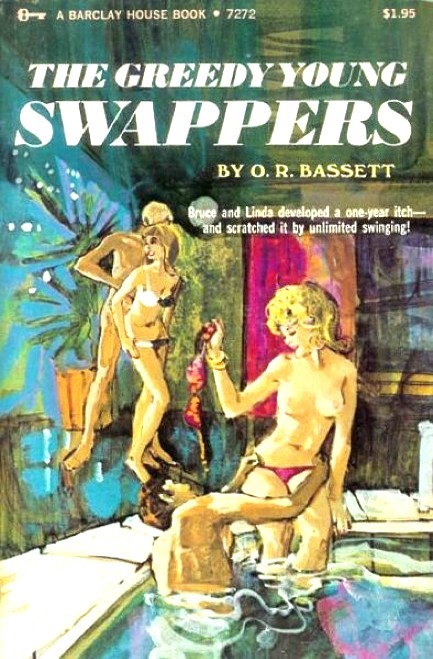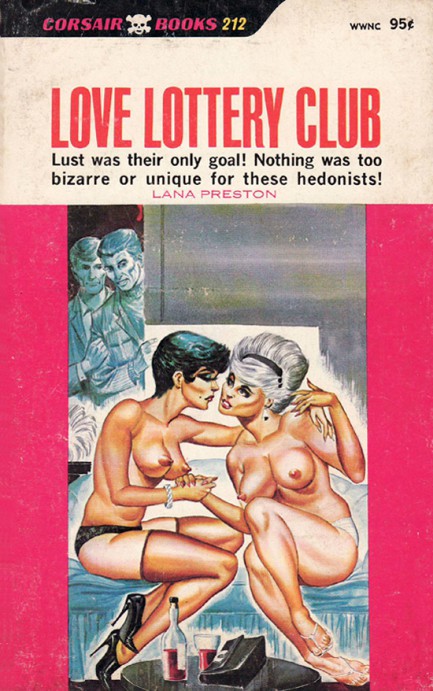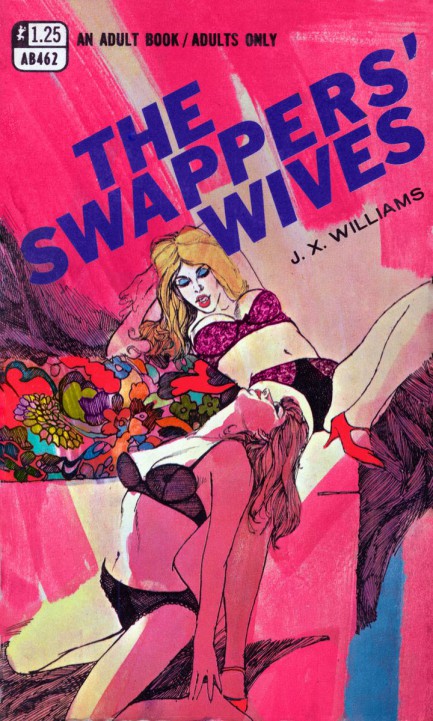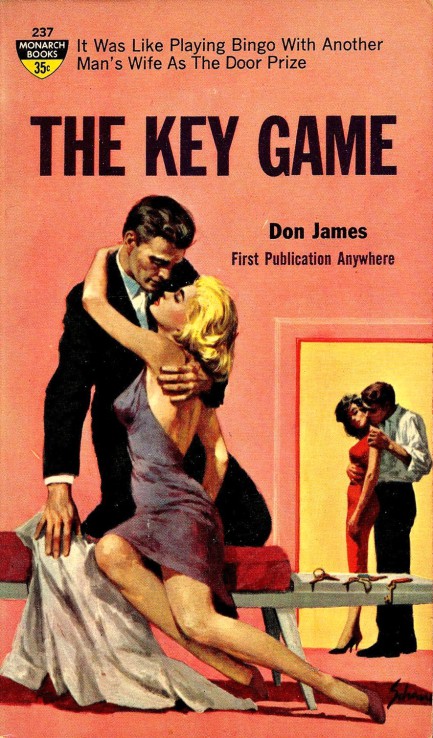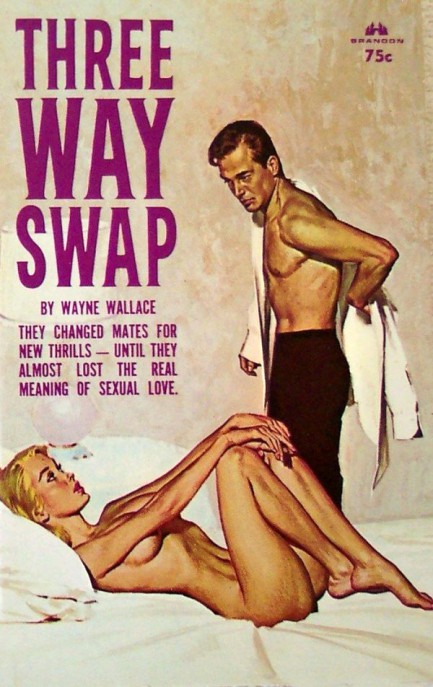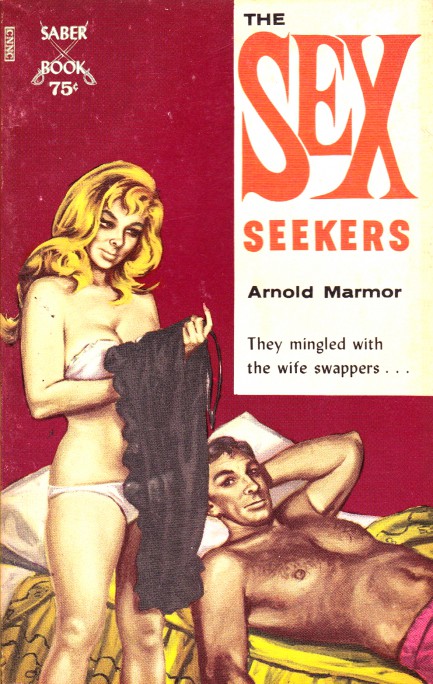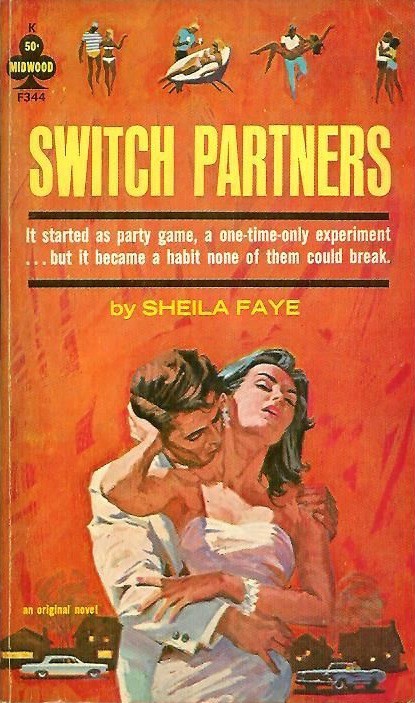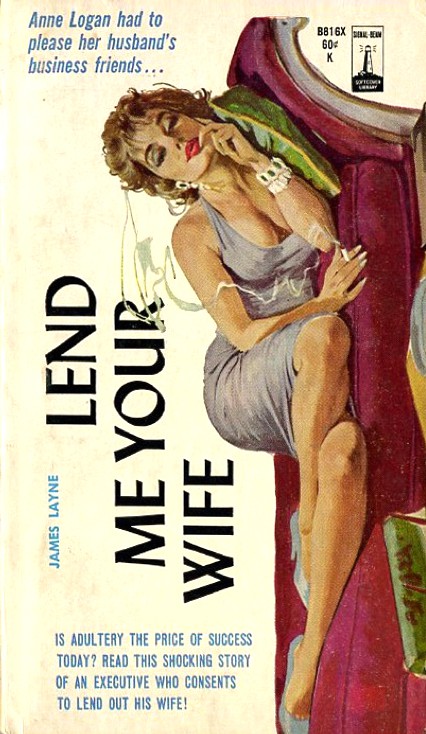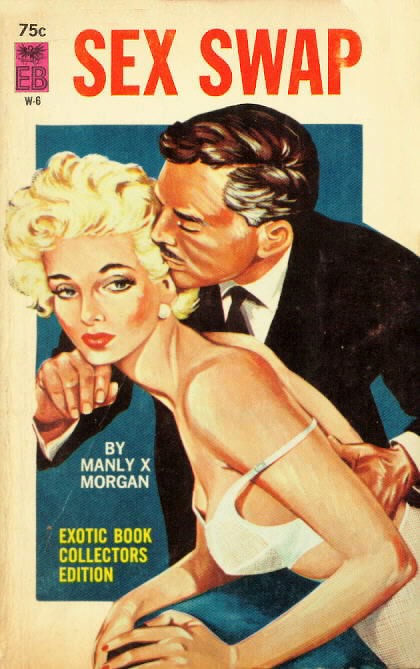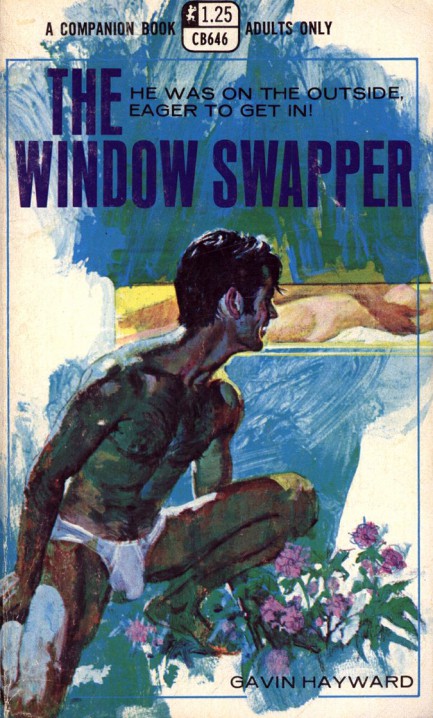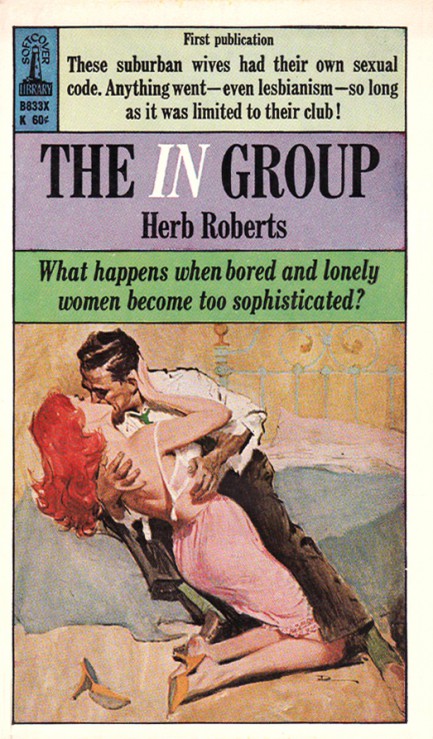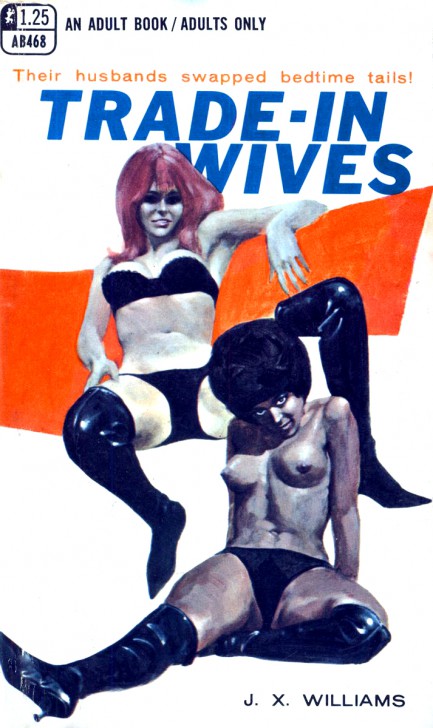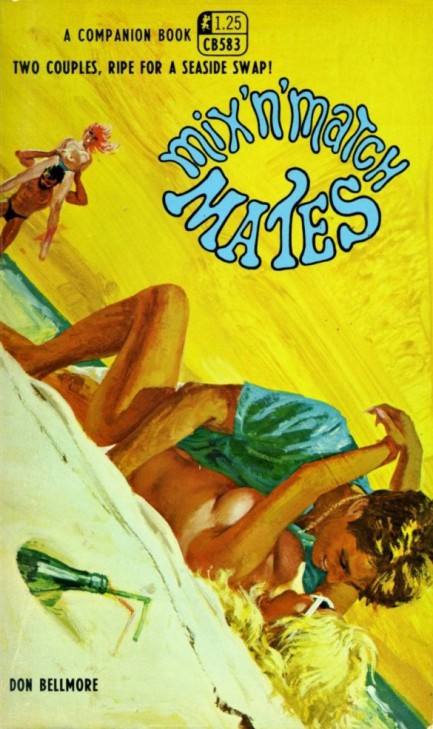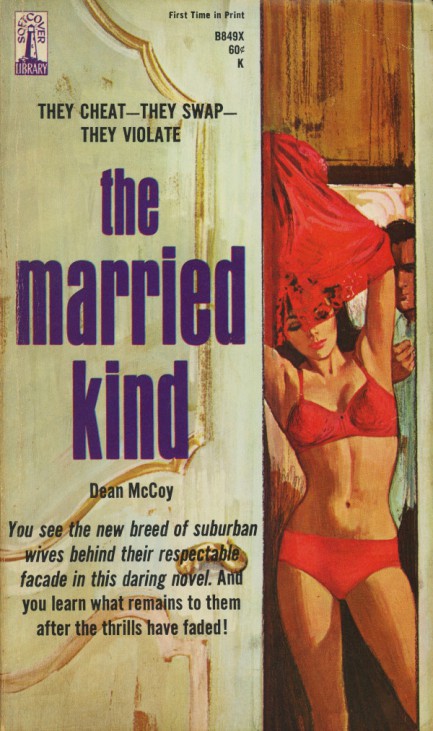| Vintage Pulp | May 19 2023 |

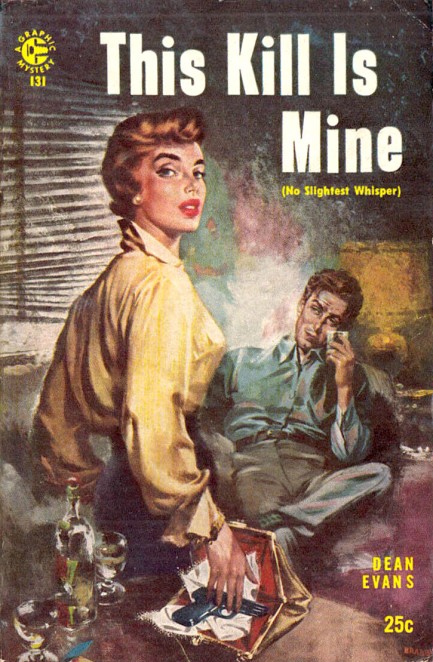
We were just talking about the classic detective novel set-up in which a woman walks into the dick's office, and here's another example—This Kill Is Mine from Graphic Books in 1956—using that time honored technique. It was originally published as No Slightest Whisper in 1955. Before we get into the book, though, let's note the awesome illustration from Oliver Brabbins, an artist we don't see as much as we'd like. He covers it all here—femme fatale, gun, noir blinds, etc. We especially like how he gets all Manet with the bottle and glasses. It's lovely work. Let's also note the cool interior graphic by an unknown designer (see below) featuring a beautiful stylized silhouette. We liked the book before we read a word.
Those words were written by Dean Evans, and as we said he goes classic with his opening when a woman walks through Reno detective Arnold Weir's office door. Evans tweaks the formula a bit by having the woman be a millionaire's secretary and having the actual millionaire call first and announce that his secretary is on the way, but basically it's the old standard: door opens and trouble commences. Weir is soon embroiled in murder, blackmail, cop trouble, false identity, missing jewels, and the romantic attentions of the secretary. The narrative is filled with hard-boiled lines such as:
He needs protecting like the Painted Desert needs a second coat.
Little grafting souls. Little, filthy, cheap, unimaginative, grafting souls.
I felt as sour as a quince in a bucket of lemons.
Hard-boiled dialogue is a double edged sword. Generally, all but the best authors come up with clunkers, such as Evans' insistence on saying this or that person “curled his lips” at someone else. Once, okay. Twice, maybe. Instance six or seven was a reminder that a standard “smile” or “sneer” will get the job done. Curled his lips sounds like something from a horror novel. Then there was this dud: Her skin was soft and clean looking, like the skin of a fifteen-year-old waking after a night's sleep. Hmph. But generally Evans does well with the repartee. You have to give him credit for that much.
Weir the detective wanders around on a standard clue hunt before finally uncovering the solution—which is related to revenge and secrets that go back twenty years—and finally settling matters in a wild shootout. Overall the book isn't bad, but there are an awful lot of not-bads in genre fiction. Evans knows the formula for writing a mystery, but doesn't make the ingredients come together into something memorable aside from his many clever turns of phrase. We gather he was mainly a sci-fi and fantasy writer, and This Kill Is Mine was his only detective novel. If he'd kept with it he might have done well, but this effort doesn't quite get there.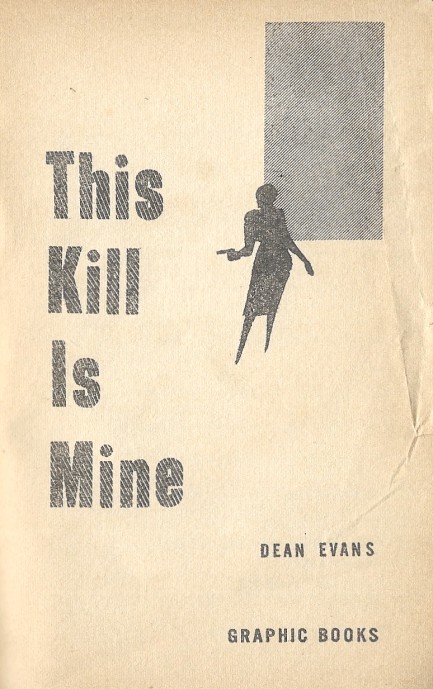
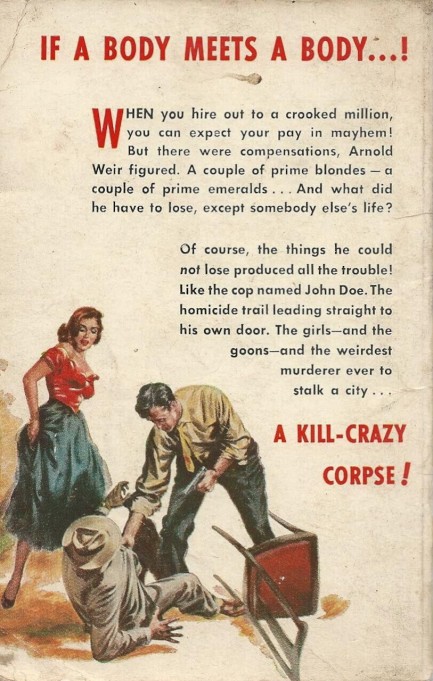
| Vintage Pulp | Apr 5 2021 |

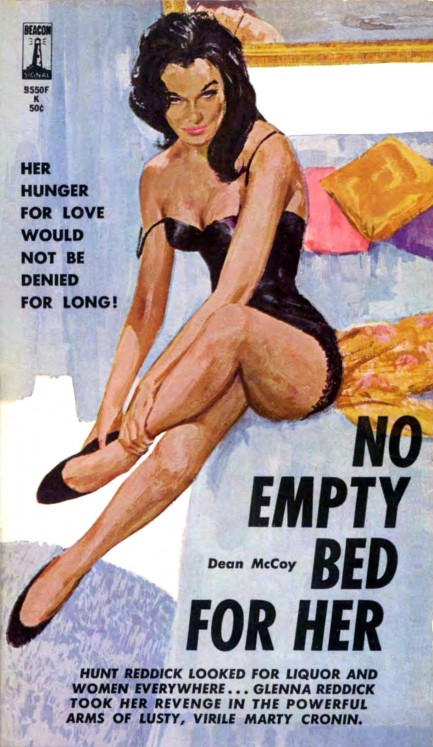
| Vintage Pulp | May 27 2018 |

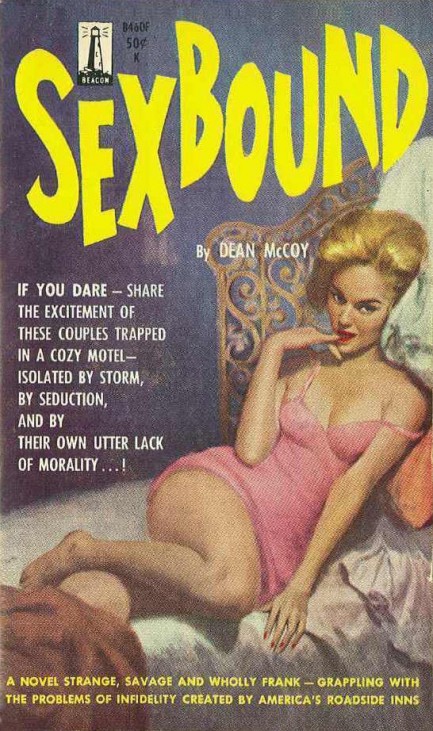
A beautiful cover by Clement Micarelli elevates Dean McCoy's sleaze offering Sexbound, published by Beacon Books in 1961. The book deals with a group of people who get stuck in an isolated motel during a blizzard. These situations always turn into massacres or orgies, and we're in the latter territory here as the hot local waitress, the couple who think they have a solid marriage but don't, the dedicated swingers, and others start switching and swapping as the storm rages. Loins are inflamed, hearts are broken, and revenge enacted. The book was a hit for Beacon, and the company seems to have re-issued it in 1965, which is why if you look online you'll see contradictions about the copyright date. Below you see Micarelli's original art, and you can see the quality of it without the obscuring text. We'll hopefully locate more from him and share it later. 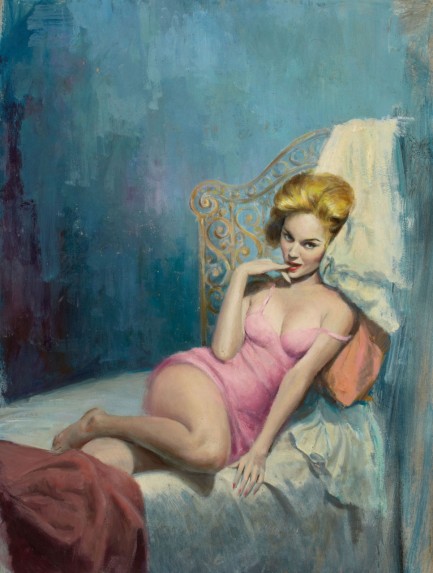
| Vintage Pulp | May 24 2017 |

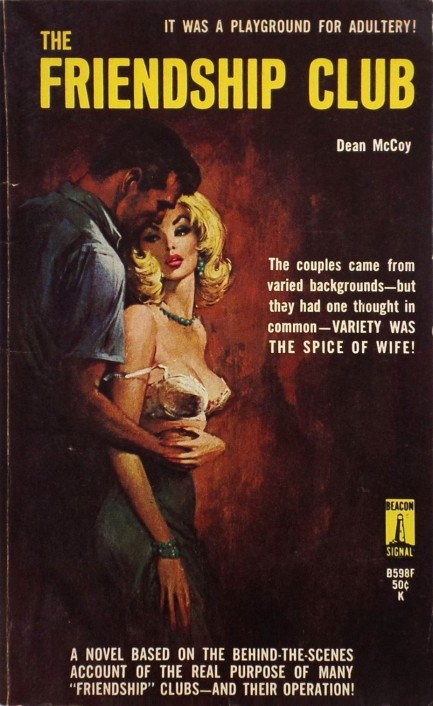
Charles Copeland is the brush behind this cover for The Friendship Club, and he's done his usual bang-up job. The book was written by Dean McCoy, which was a pseudonym used by Dudley Dean McGaughy for several novels, including Beach Binge and Juice Town, which also sound like winners. In this one a swinging couple puts together a swapping club for like-minded residents of their small town community, and everything goes well until one of the members decides swapping means woman on woman too. The guys are dismayed to learn their services aren't required, or for that matter desired, and countermeasures follow. Put this in the dangerous lesbians bin, 1963.
| Vintage Pulp | May 18 2017 |

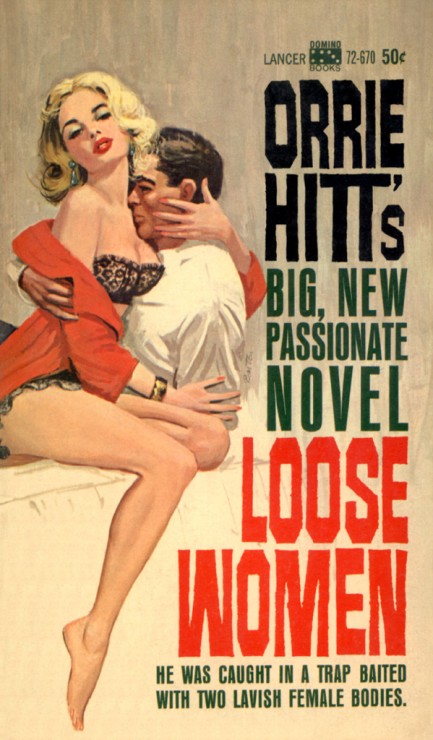
A couple of days ago we shared a cover painted by Harry Barton, and today we're back with assorted examples in the same vein, once again showing instances of neck kissing, or variations very close to that. All of these were also painted by Barton, who clearly had a fine appreciation for female necks. Or male mouths. Whichever.
Barton was a prolific artist who through the ’50s and ’60s produced covers for Avon, Bantam, Dell, Monarch, and Pocket Books. He painted even more fronts with poses close to those seen here, for example men and women kissing normally, but today we decided to stick only to neck kissing. Which by the way is a nice way to spend a few minutes if you have a willing partner.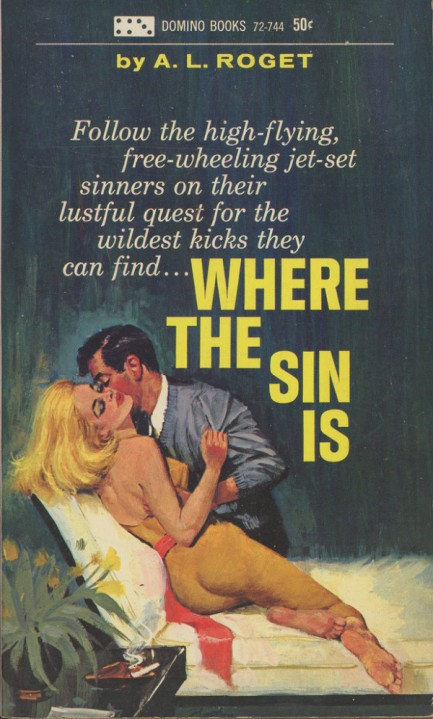
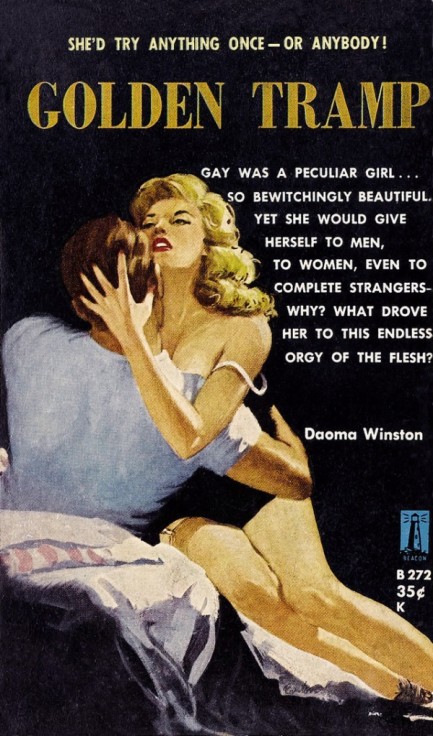
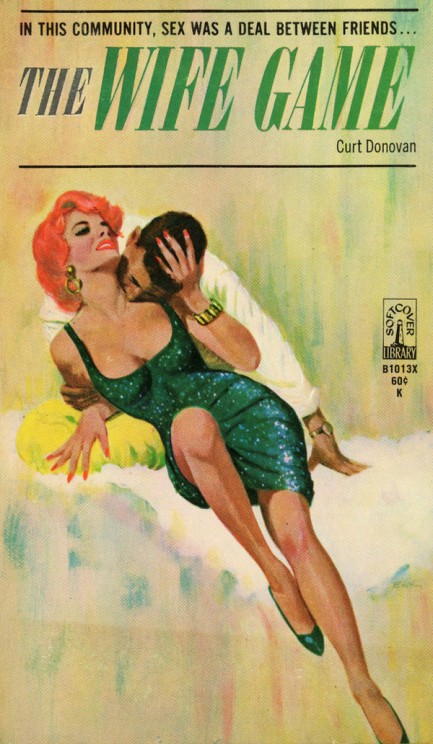
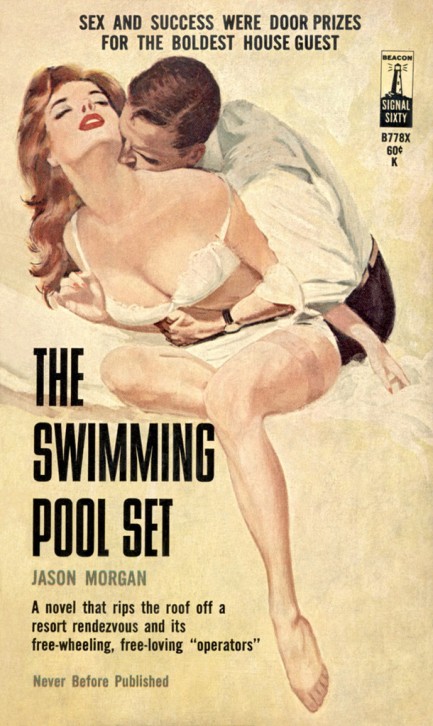
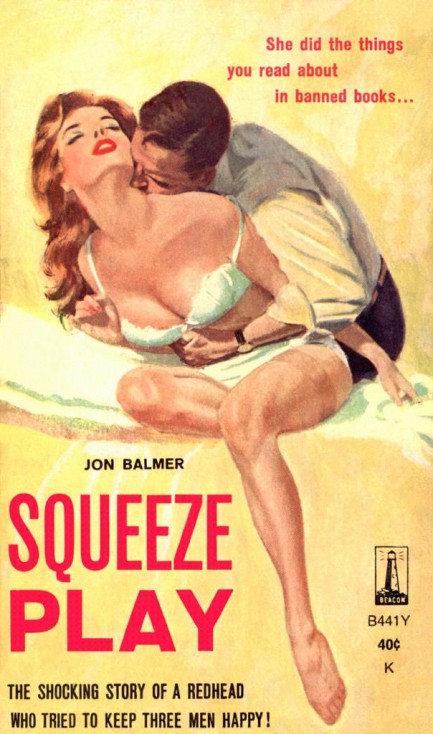
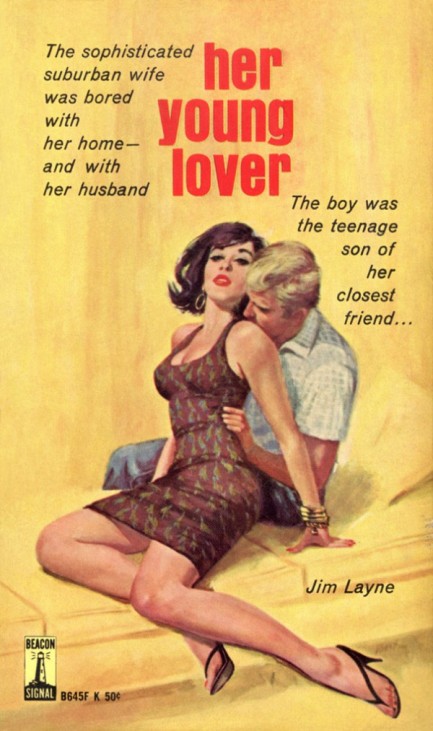
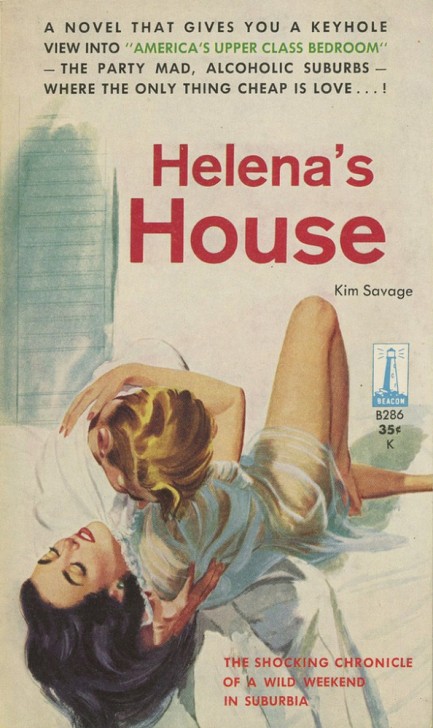
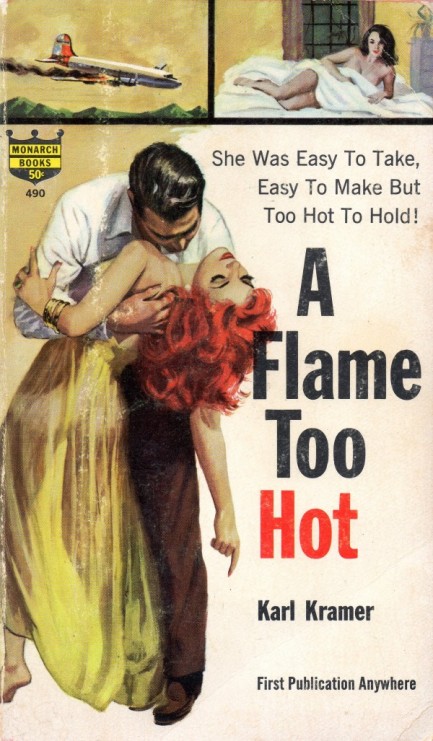
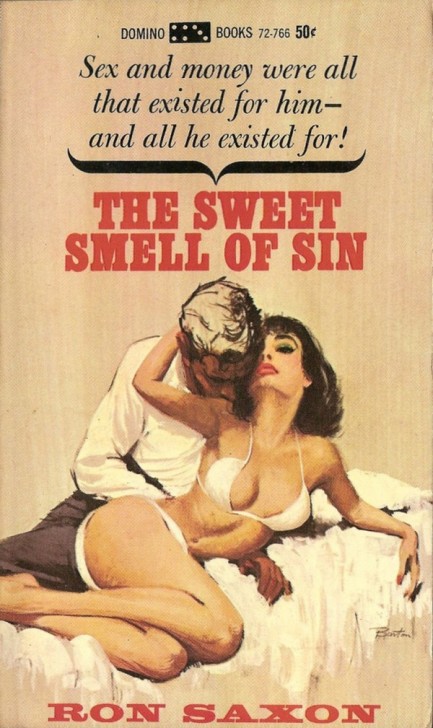
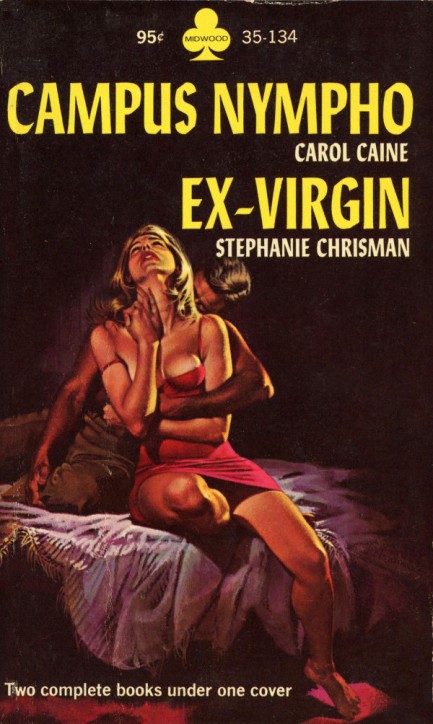
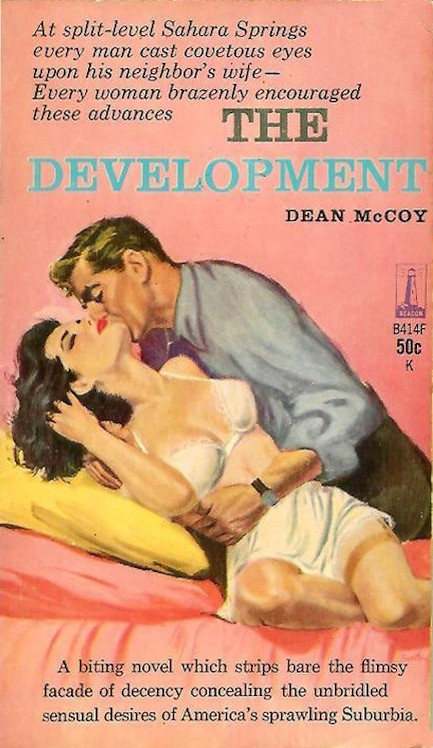
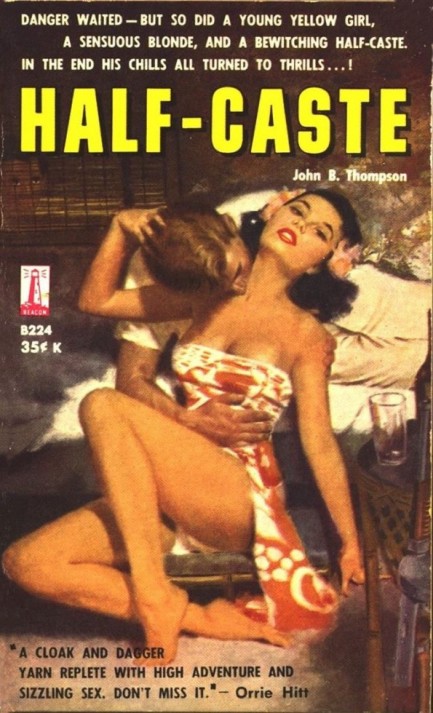
| Vintage Pulp | Mar 14 2015 |

